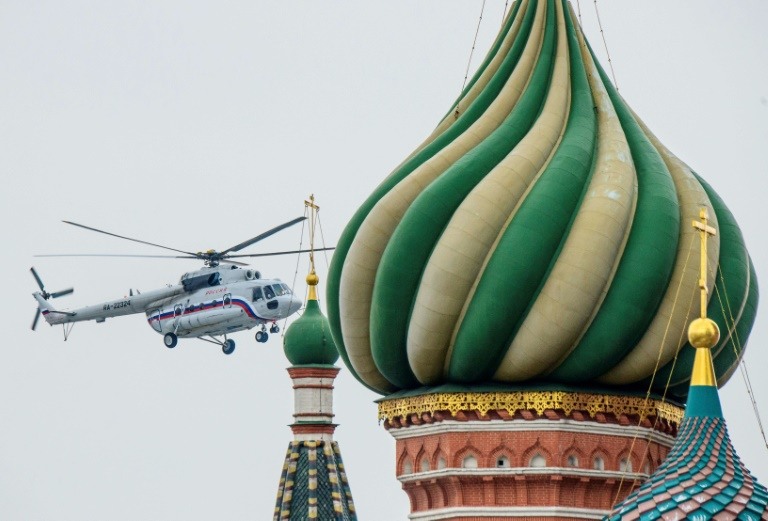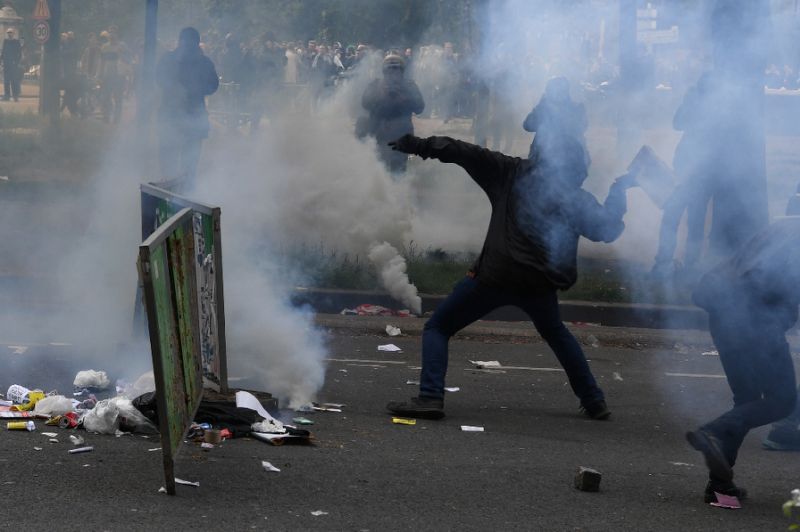Russian lawmakers on Tuesday backed a bill that could cut off the country’s internet traffic from servers abroad which critics say is a step towards censorship and possibly an isolated network like in North Korea.
The bill passed its first reading by 334 votes to 47 after an unusually heated debate in the State Duma, where many lawmakers from minority parties criticized it as too costly and argued that it was not written by experts.
Authors of the initiative say Russia must ensure the security of its networks after U.S. President Donald Trump unveiled America’s new cybersecurity strategy last year.
The new approach follows what U.S. officials said was a wave of cyber attacks by Russia, Iran, North Korea and China, warning it would now respond to any future hostile intrusions both offensively and defensively.
Those behind the legislation say the aim is to create “defense mechanisms to ensure the long-term stable function of internet networks in Russia” in the event the U.S. takes any action in cyberspace to threaten them.
It proposes creating a center to “ensure and control the routing of internet traffic” and requires that Internet Service Providers (ISPs) install “technical measures to withstand threats.”
It also mandates regular “drills” to test whether Russia’s internet can function in an isolated mode.
Taking questions on the floor, the authors were unable to estimate the long-term costs, what threats it would repel or even how it would work but said expert opinions could be incorporated into the bill for its second hearing.
Unusually heated debate on the bill to create "sovereign" internet in Russia. One lawmaker screams that infrastructure for the bill would be impossible to create: "Russia does not produce any IT hardware, only cables, which some people better hang themselves on"
— Maria Antonova (@mashant) February 12, 2019
One of the authors dismissed all criticism, citing the scale of the potential threat from Washington.
“This isn’t kindergarten!” shouted Andrei Lugovoi, one of the main suspects in the 2006 murder of Kremlin critic Alexander Litvinenko in Britain.
“All of the websites in Syria” have been turned off by the U.S. before, he claimed.
Why This Matters
If passed, the law could make it possible to cut Russia off from the global web, or to initiate an internet blackout in an isolated region if it is rocked by unrest or opposition, said Andrei Soldatov, who co-authored a book on the history of internet surveillance in Russia.
“This is very serious,” he said, adding that it seemed the bill had official support “so the chances that it will become law are very high.”
Internet freedom activists say the bill is another censorship bid following previous efforts in Russia to control global social networking platforms and block the Telegram messenger service.
Though the bill claims to address external threats, it would just be another law that “permits limiting rights and freedoms on the internet” in Russia, said Artyom Kozlyuk, who heads Roskomsvoboda, a group that campaigns against internet regulation.
He believes measures outlined in the bill could cost more than 100 billion rubles ($1.5 billion) per year, from both public and private coffers.
“De facto, it will have a serious economic effect… everything will be slower and more expensive,” Kozlyuk said.
While some critics have said Russia is considering creating a China-style firewall, it would be cheaper and easier to adapt the North Korean model of a nationwide intranet, he said.
“North Korea’s experience shows that a totally autonomous internet is possible.”
#GME | Russia is planning to disconnect its internet systems from the global network, as a test of its cyber-defences.
We're joined from Moscow by Galina Polonskaya who has more on this planned cyber shutdown.https://t.co/Rve1LorsqB pic.twitter.com/i8vps6faVF
— euronews (@euronews) February 12, 2019
More on the Subject
Last February, the Agora rights group said a rise in Russian internet suppression resulted in 43 people being sentenced to jail over online posts in 2017, warning that the country is slowly criminalizing internet use as the security service tightens its grip.
The group presented a report on “the creeping criminalization of the internet,” in which it registered 115,706 cases of restrictions on internet freedom.





















